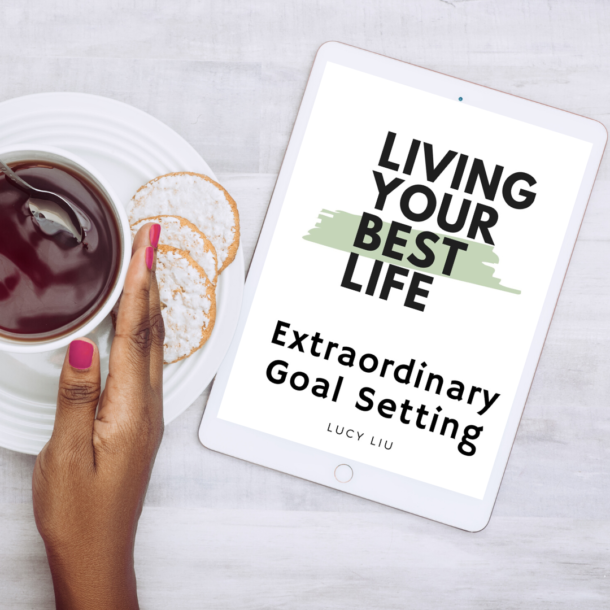225. How To Create Binge Worthy Content with Tracy Hazzard
This episode is for you if you want to learn how to create binge worthy content, attract more leads and sell more stuff.
LISTEN TO THE PODCAST
WATCH THE EPISODE
Tracy Hazzard is a seasoned media expert, influence strategist for speakers, authors & experts, founder of Podetize,and she co-hosts multiple top-ranked podcasts with over 2000 podcast episodes combined, including: The Binge Factor, which I had the pleasure of being a guest on. Besides being featured in Harvard Business Review, Forbes, Wired, and CNN Money, Tracy was also a Columnist for Inc. Magazine, Authority Magazine, and so many more.
Lucy and Tracy Hazzard, discussed the concept of ‘bingeworthy’ content strategy in their marketing strategy, emphasizing the importance of creating evergreen, timeless content that builds a deeper connection with the audience.
They also discussed the best approach to creating content for their business, with a focus on understanding the target audience and using video content as a primary format.
Lastly, they touched on the importance of sustained growth in content creation, the dangers of relying on viral content, and the use of “open looping” to keep audiences engaged.
Things talked about:
– What is binge worthy content?
– Binge Worthy content as a marketing strategy?
– Why is it better than just going viral?
– and so much more…
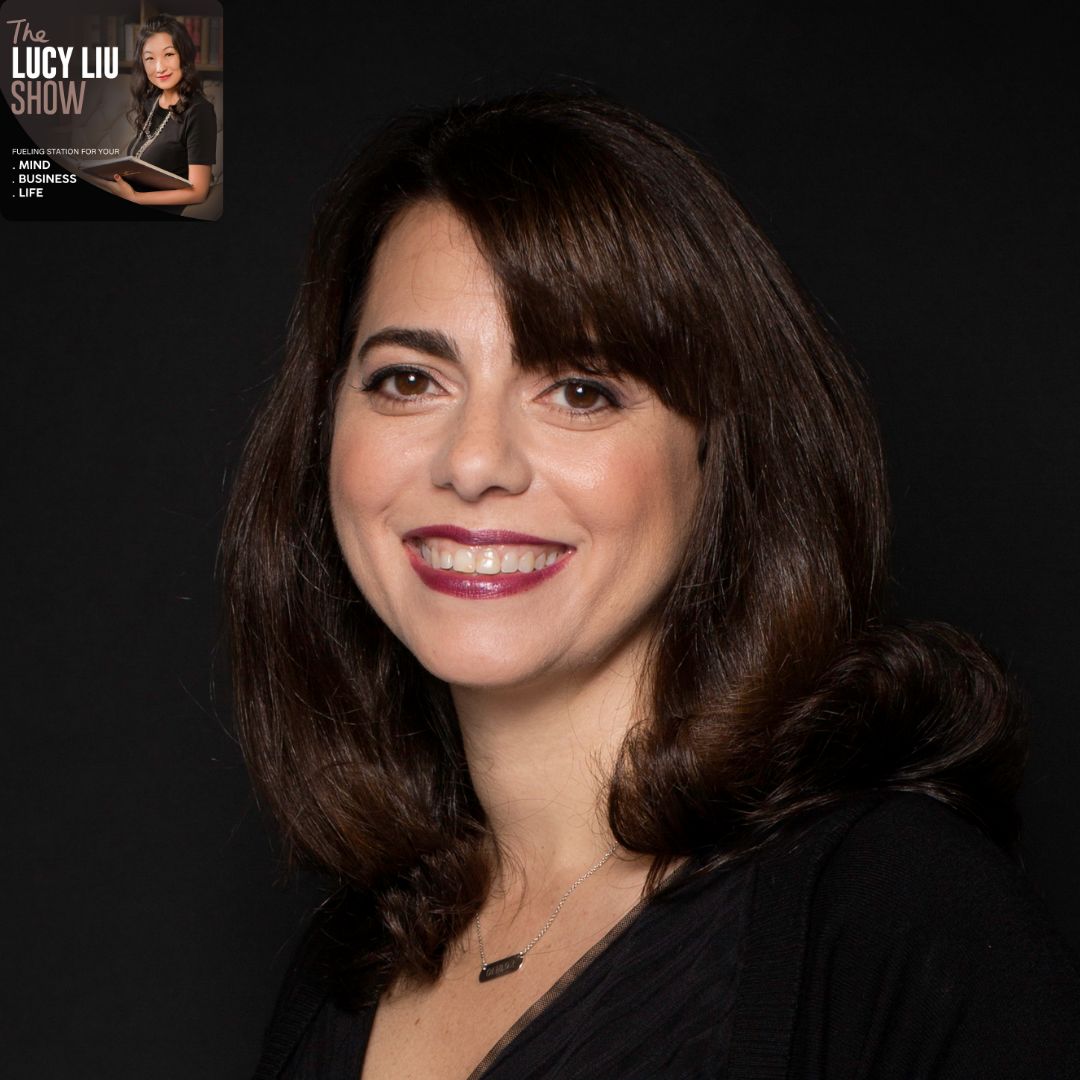
Connect with Tracy Hazzard
Website: https://tracyhazzard.com
Facebook: https://www.facebook.com/tracyleighhazzard
Instagram: https://www.instagram.com/podetize
LinkedIn: https://www.linkedin.com/in/tracyhazzard
Pinterest: https://www.pinterest.com/hazzdesign
Youtube: https://www.youtube.com/@Hazzdesign
Connect with Lucy:
Instagram: https://www.instagram.com/mslucyliu
Facebook: https://www.facebook.com/mslucyliu
Twitter: https://www.twitter.com/mslucyliu
LinkedIn: https://www.linkedin.com/in/mslucyliu
TikTok: https://www.tiktok.com/@mslucyliu
YouTube: https://youtube.com/@mslucyliu
Website: https://www.lucyliucoaching.com
Podcast: https://www.lucyliucoaching.com/podcast
Wanna double your confidence in 30 seconds?
Get the ultimate secret here:
FULL EPISODE TRANSCRIPT
Welcome to the show, Tracy.
Thanks for having me, Lucy. It’s good to see you again.
Yay. We’re so excited to talk about binge worthy content, because as we were just talking about, that’s what you are all about.
Yeah, I mean, I think too many people are out there talking about viral content, but viral content is one thing.
How do I get somebody to buy something from me, like my brand, come back, hire me to coach them, whatever that might be, that requires a deeper dive. Viral is just a tipping point. It’s just getting noticed.
It doesn’t mean somebody’s going to trust you. Totally. And binge worthy content, that is actually a kind of marketing strategy, right? Yeah, because look, some of us have programs or we just require a deeper dive into something before somebody is going to hire us.
They need to have more details, more information. I used to be a consultant in the product design and development world. It’s how I got my ink column.
And in that world, it would take me nine months to close a client because it was a multimillion dollar project. It would last years. So when we have something where lots of trust is required, we need something they can dive into and binge on things because the more touch points they get with us, the more likely they are going to be to consume whatever it is we have to sell.
Let’s go back though. Let’s go back to the beginning and start with what do you consider binge worthy content?
So my definition of binge, and I mean, many of us know this term, like binge watch Netflix, you know, we use this term, but think about it this way. If I’m going to find you through whatever means possible, I find your show and I say, I’m going to go back to the beginning and I’m going to listen to every episode.
I’m binging on your show. That means that your show had something to give me at any point in time that I find it. It’s sometimes we use the term evergreen in social media or in just, it means it’s still timeless help and information today as it was the day I recorded it.
So that’s really important is that we want something defined as evergreen. Then the second thing is, is that it builds on itself. So it’s kind of like when we binge watch a series, right? They’re coming from point A all the way to point B. It’s just, they’re taking a really long time to get there, right? That’s the kind of thing.
Any kind of bingeable content is taking us somewhere to success, to personal development, to transformation, whatever it might be that you’re taking them through. You’re taking them through piece by piece in actionable ways that they can do something about it or in entertaining ways, as we do with other types of bingeable content, right? And so those characteristics are what makes something binge worthy. So good.
But where would we start? Where should we start? Should we start with understanding the audience or should we start about our business goal?
That’s such a great question. And sometimes we’re farther along in our businesses and we know what we want. So my show, The Binge Factor, is clearly focused on somebody who’s already a podcaster and I know that.
So then it dictates what my content should be, meaning it shouldn’t be beginner stuff. It should be serious marketing and growth things, right? So if we’re far enough along that we really defined that audience, then we do that first. But if we don’t know, I like to call it hypothesis content creation or hypothesis branding sometimes when we used to do that in that model.
But I have an idea that this might be my audience. So now I need to prove it out by creating content that’s ideal for that audience and see what happens. So in that particular case, the content comes first.
So when you’re starting out and you’ve not really tested out a message, for instance, you got to start with the message, with this idea of who the audience is. And I know you’re not just about podcasting. You’re about a lot of things.
And I think this goes with all different types of media, right? Yeah. So I’m a big fan of starting with video. Like this is, it’s like too much of what we do today has video components to it.
Video shorts, viral TikToks, like all of those things, like we need video content somewhere in it. So I’m a big fan of like that being your starting point. So I live stream out my, one of my podcasts, Feature Brand, I live stream that out every week and I’m serving my community while I’m live streaming it.
But I am making content creation at the same time. Then I take it from video to audio, turn it into my podcast, and then I create blogs from it, put it on my website and I create transcription style blogs. So I call them SEO packed blogs.
We call them verbal SEO blogs, because they’re the way you say things, not the way you type things. So it’s not a written article, but then I write articles. So that might be the next step you want to take it to, or maybe you want to write a book and it becomes a chapter in your book.
Now those things are like real written, I’m going to call them summaries. Yes, but they’re also much more written in that sort of style of a listicle if you were writing an article. And so this is exactly how I used to create my ink column when I did it as I would podcast.
And then I would say, okay, well, that was really great. Maybe I’m going to lump these two concepts together and write an article about it. And then I’d write a 800 word article about it.
And it would reference the two podcasts. If somebody wanted a deeper dive or reference my video. So by tying all of our content pieces together and getting them into forms that people want to consume, because some people are readers, some people are watchers, some people are listeners, right? There are different kinds of modalities to learning.
We want to be in all those places, but we need it to start from one place. And that’s why I choose video. And would you say your goal from all of these content creating is actually to lead people to somewhere else? So everything belongs in your home base.
So this is I’m, I’m so frustrated by those models of people be like, your Instagram is your home. No, your Instagram belongs to Instagram and they can shut you down tomorrow. They could change their algorithm.
They could change everything on you. You need to own your content and it needs to belong to you. And you need to drive the traffic who truly wants more information there because they’re not distracted by all the cute puppy pictures and all the cute families who look all great in their matching outfits, right? Like we need them to be immersed in our content.
Plus social media, especially it’s very transitory. So like, in other words, it lasts about an hour, two hours on some of the social media platforms. I think like it’s 30 minutes on Tik TOK.
So like if you posted content by 30 minutes, it’s already old and no longer churning in the algorithm. So it’s not a library for someone to find and binge on your content, make that your home base. And I’m a big fan of your own website being your home base, the primary place you’re going to sell your course, your book, your whatever it is your business is in make it there.
So much truth in that while we’re creating these content, would you say there’s a special technique that you use when you’re creating your binge worthy content, for example, towards the beginning of the content towards the ending? Is there a special formula that you use personally?
So people get really comfortable with I’m gonna call it models, right? So, you know, there’s a model of how, how you produce your show. Once somebody is binging on your show, they feel comfortable that you have this. So in my show, I have do an introduction, just like you did here with us.
And I have closing thoughts. And it’s the closing thoughts that my clients will listen through for because they want that my binge listeners listen through because they want that. So if you’ve got something that you do that’s special, that is really your lessons, your perspective, you’re bringing that in the you that you bring to your show, make sure you do that consistently.
Because the more consistently you do that, the more you’re serving the audience that’s looking for that. But in today’s world, we have an attention span issue. So we really do have to deep dive and get in as quick as possible to the value they’re going to receive today.
So anytime we can do that in the first minute of our content, we don’t want to give it all away. We just want to give them the why should you stick up for the next minute, and the next minute and the next minute. So it’s the quality of what you’re producing, whether that’s video, audio or text, it’s all about the quality as well.
And sometimes it takes trial and error to know what your audience really is going for. Like you mentioned earlier, yes, you can go viral with one post one episode, but how do you keep that going? Right? Yeah, I mean, it look, I have people who are like, I have such I have 100,000 views on this one video on YouTube, but the rest of their videos don’t even get 10 views that it didn’t serve their business. It didn’t serve their channel, it didn’t grow anything.
So going viral shouldn’t be the sustained growth, where I can get more listeners coming up every single day, more viewers, more followers, more people to my website. That’s what I want every single day. And I have to remember also, it’s like too often we quit whatever it is, because 10 views on my video might be the 10 right people who needed my message today who will become two of my clients next week.
So that’s maybe more than enough. We discount it when we compare ourselves to someone who went viral and got 100,000. We don’t compare it to the results achieved from getting the numbers that we get.
And so I always look at that and say, really, what is your ultimate goal? And if your ultimate goal in this content creation is more of the right traffic, then you can’t pay attention to the number. You have to pay attention to what that traffic is transacting or what that traffic is saying to you. I want more is a really good thing if that’s what they’re asking you for.
It’s what happened in my very first podcast, a geeky little podcast on 3D printing. And we were producing five episodes a week. And they came back and asked us to make our episodes longer.
Can you imagine that they asked us for more? And I mean, how amazing is that, though? That is true, sustainable growth. Thank you for all that knowledge. That is such a good reminder.
For example, my clients, most of them are not even on Instagram, and they don’t like or comment on my stuff. Mine are more on LinkedIn and YouTube than they are on Instagram. But you may not find that out in the beginning, right? So it takes some time to really understand where your core is.
But I mean, they might be stalking you. They might be just lurking around and making sure you’re so keep doing it. I call that I call that alive and posting.
It’s actually a term I use in my company here. So I was like, I don’t love Twitter. It’s not my favorite place to hang out for myself personally.
And I know it’s called X now. But I don’t like to do I just don’t like to participate in that community there. It’s not my thing.
But I post once a week to it as an auto post from my blog so that people know that I’m alive and posting and my business is legitimate. So you can find ways to get around having to actually actively do it. So good.
You know, when I think of binge worthy, one of the term that comes to mind is cliffhangers. You know how people talk about having a cliffhanger ending or a tease, you know, I have an announcement to make tomorrow or this will happen in the next installment. What is your best cliffhanger idea?
So I don’t call them cliffhangers.
I call it open looping, which is a real like entrepreneurial like, you know, mindset term, but I call it open looping. So when I am in that first minute, I’m going to say, Lucy Liu is so amazing. And you’re going to really get this value today.
And we’re going to talk about this coming up. So you have open loop and I’ve left this nugget that they’re going to get later. And so that way they were like, well, I need to hear that.
I need to hear that answers. Or if you do like one, two, three, but you don’t give them three yet. And I don’t like to leave cliffhangers because that leaves people incomplete.
So I may leave it though. The open loop is in order to really deep dive, I really don’t have a lot of time to go into three. So three is this.
However, I have a whole nother episode on that, that you could click through and go to. And now you’ll be able to, you know, get all that details on that information because it’s way bigger topic than we can cover here today. Now you’ve given them a call to action that’s really specific.
And it was kind of a cliffhanger, but without being, you know, that frustrating. Have you ever done it where you’re like, yell at the TV? No, tell us who won. Like, you know, we don’t want them yelling at us.
So much goodness in such a short time. And if you’ve listened to this episode or my podcast, you will know I will squeeze the favorite quote of my guests towards the end of each episode. That’s going to give you so much wisdom.
So hit it, Tracy. What’s your favorite quote?
So it’s almost a mantra here. So we use this again and again.
Hope is not a plan. Too many entrepreneurs, too many people out there hope that they’re going to get an audience, hope that their podcast is going to achieve this, hope that they’re going to go viral. Right.
But all of those things require a plan. It doesn’t mean it has to be the perfect plan. It doesn’t mean it has to be everything.
It doesn’t mean it has to be a lot of money. Right. It just means that we have to have an idea in mind about how it’s going to happen and take intentional steps to make that occur.
Intention changes hope into actual action.
So good. So good. Where can we find you, Tracy?
So you can find Podetize, which is podcasting and monetization podetize together. You can find us anywhere on social media, but you can also find us at podcastersunited.org, which is our nonprofit for supporting aspiring and existing podcasters on their journey to creating a podcast that really builds their brand and their business.
Thank you.

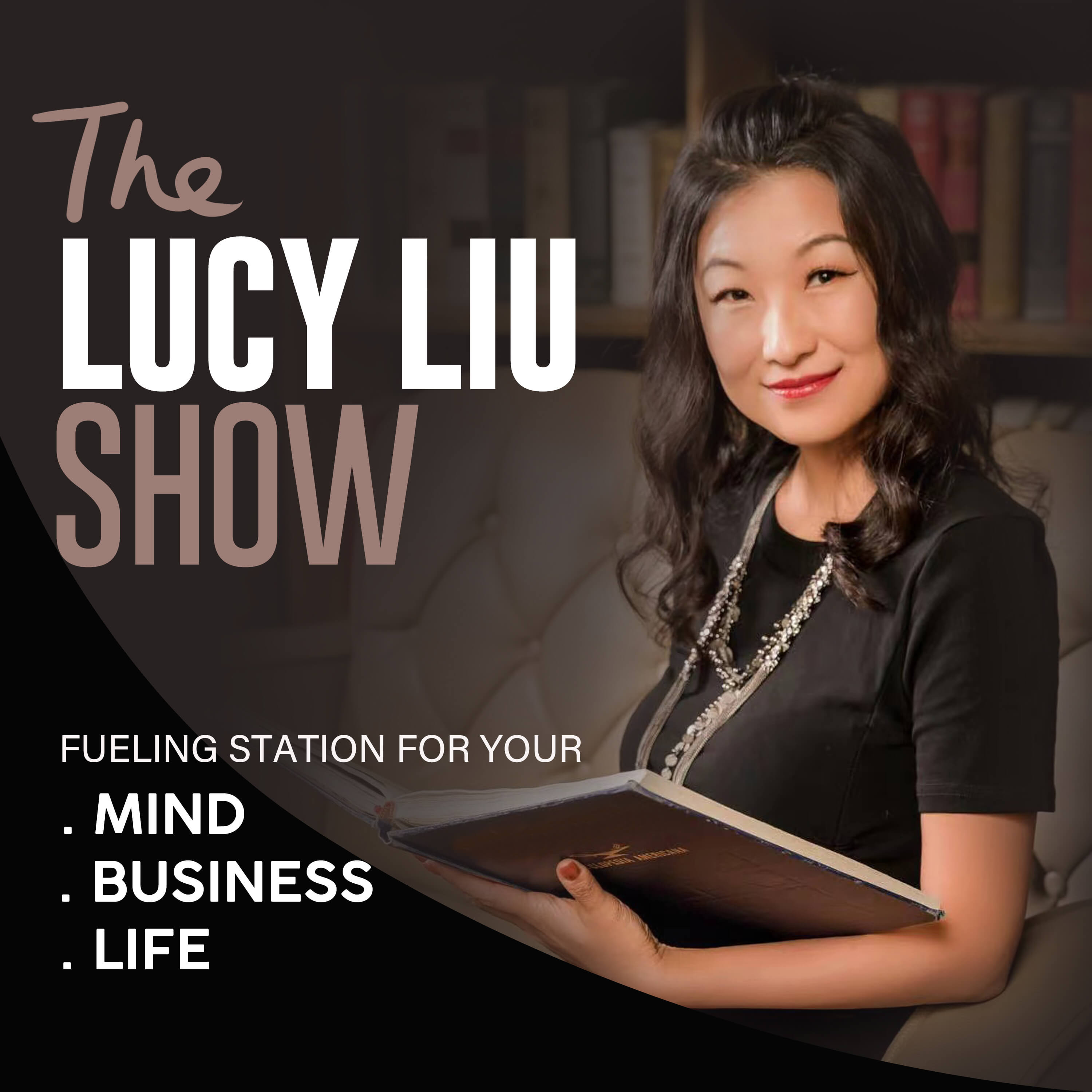
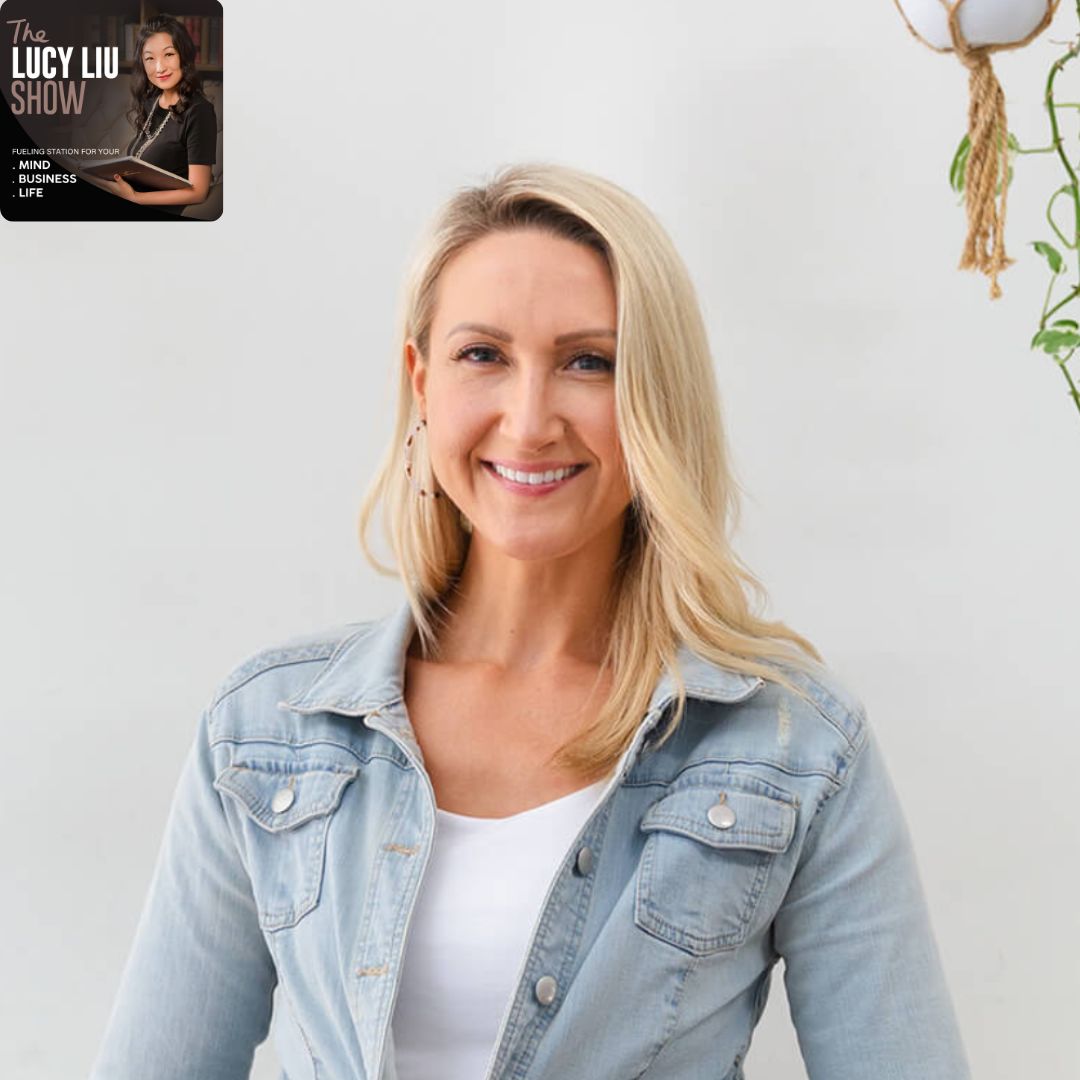
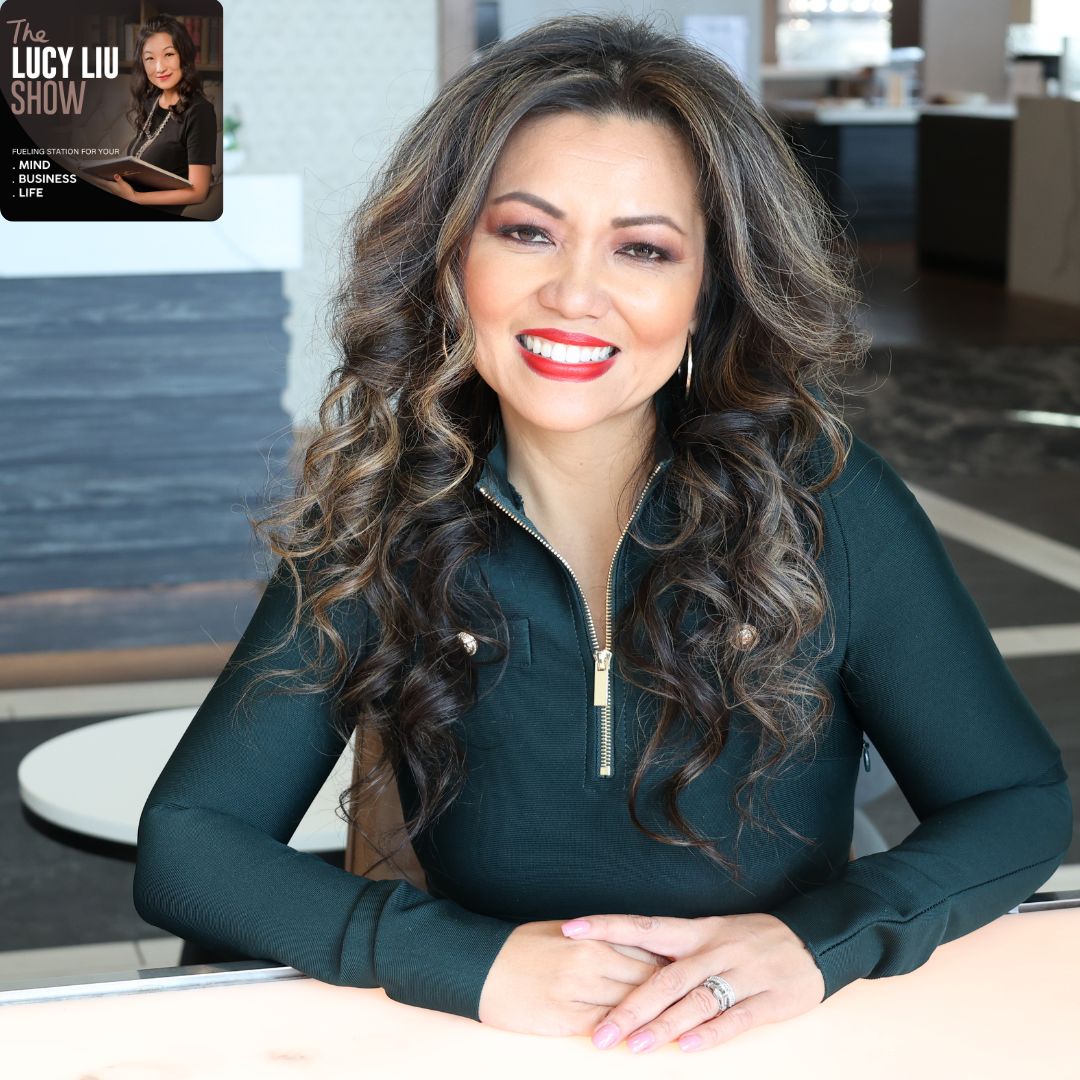
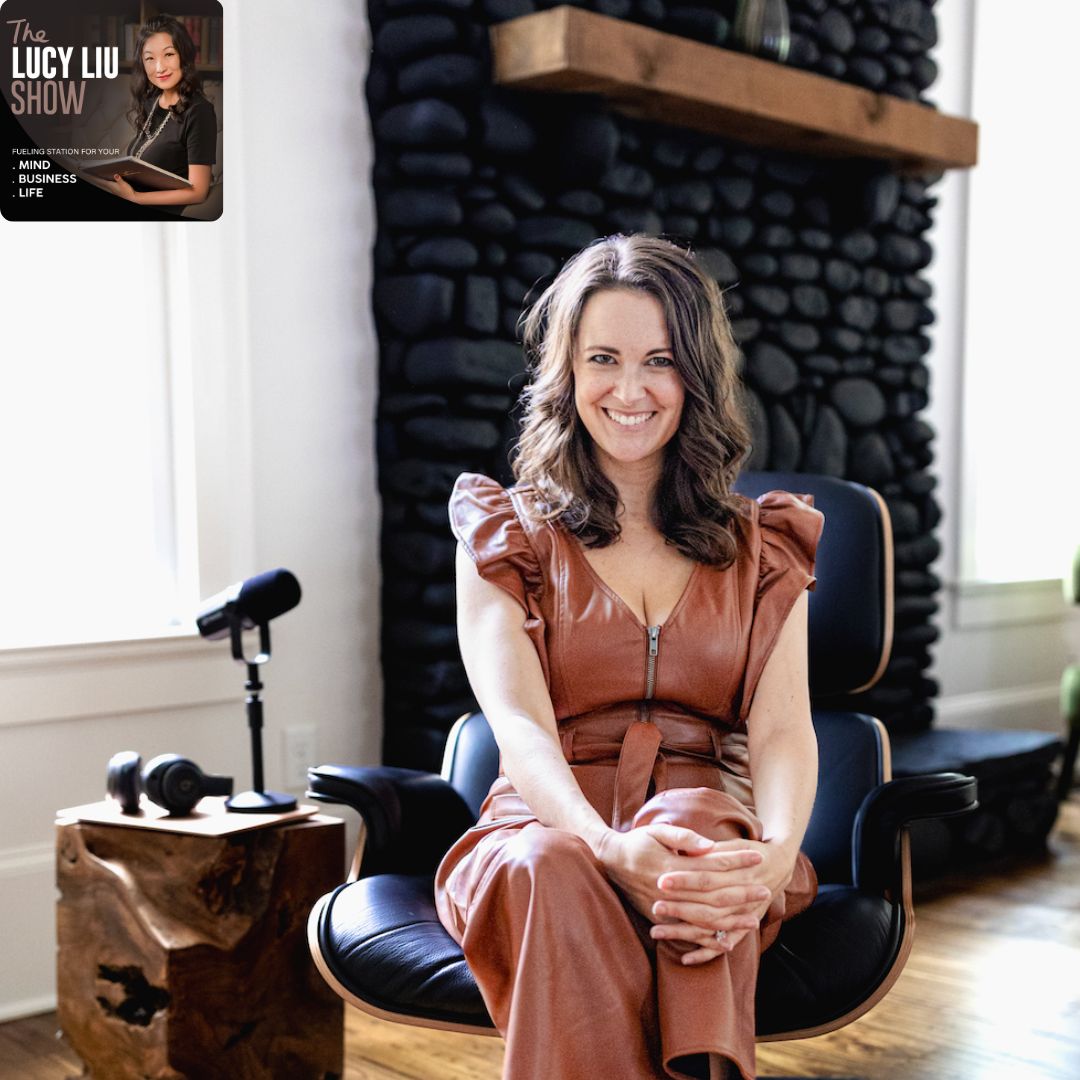
 Lucy Liu is a master life coach helping women uplevel in business and life to confidently live an epic life! She is an unshakable optimist, wife, mom, entrepreneur, workshop facilitator, motivational speaker, best selling author and podcast host of The Lucy Liu Show.
Entrepreneurs & high achievers hire her to see clarity and take quantum leaps FAST. Because most of them are overthinking, scattered and self-doubting. She's best at helping you get unstuck, make faster decisions and fulfill higher potential. Bottom line: not only make more money and impact, but have more fun and live an EPIC life by design.
She has been featured in Medium, VoyageLA, Elephant Journal, ThriveGlobal, South China Morning Post and dozens of other media outlets.
Lucy Liu is a master life coach helping women uplevel in business and life to confidently live an epic life! She is an unshakable optimist, wife, mom, entrepreneur, workshop facilitator, motivational speaker, best selling author and podcast host of The Lucy Liu Show.
Entrepreneurs & high achievers hire her to see clarity and take quantum leaps FAST. Because most of them are overthinking, scattered and self-doubting. She's best at helping you get unstuck, make faster decisions and fulfill higher potential. Bottom line: not only make more money and impact, but have more fun and live an EPIC life by design.
She has been featured in Medium, VoyageLA, Elephant Journal, ThriveGlobal, South China Morning Post and dozens of other media outlets. 


